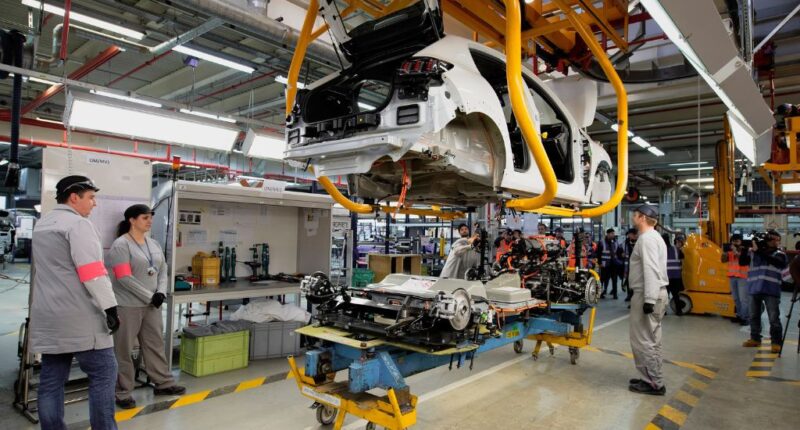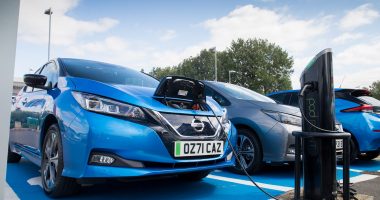Car production continued its upward trajectory in July – the third consecutive month that growth has been recorded after a turbulent start to 2022 for the UK’s automotive industry.
New figures compiled by the Society of Motor Manufacturers and Traders (SMMT) report gains of 8.6% (58,043), with this helped along by strong demand for all variants of passenger vehicles equipped with the latest battery technology.
Hybrid, plug-in hybrid and electric vehicle volumes surged by nearly 25%, yet it still was not enough to make meaningful inroads into the year-to-date deficit that still exists. Compared to 2021, this currently stands at 16.5% (461,174).
The SMMT said the fact numbers were staying positive suggests the long-running issues around part shortages may finally be starting to ease, but it warned: “Output, however, still remains below pre-pandemic levels at 46.4%, illustrating that a full recovery is some way off.”
Exports continue to be the lifeblood of the UK’s car assembly strategy and currently accounts for eight out of every 10 cars that roll off production lines up and down the country. That is despite units to the American market falling by 22.8% in July.
In comparison, orders received from the Chinese and Japanese markets spiked by 54% and 40.1% respectively. The EU remains companies’ most important customer, though, as six in 10 cars made here since January (59.3%) have been shipped there.
Mike Hawes – the SMMT’s Chief Executive – said: “A third consecutive month of growth for UK car production is, of course, welcome and gives some hope that the supply chain issues blighting the sector may finally be starting to ease.
“But other challenges remain, not least energy costs which are increasing at alarming rates. If we are to attract much needed investment to drive the production of zero emission vehicles, urgent action is needed to mitigate these costs to make the UK more competitive for manufacturing.
“This must be a priority for the next Prime Minister or else we will fall further behind our global rivals, risking jobs and economic growth,” he added.









